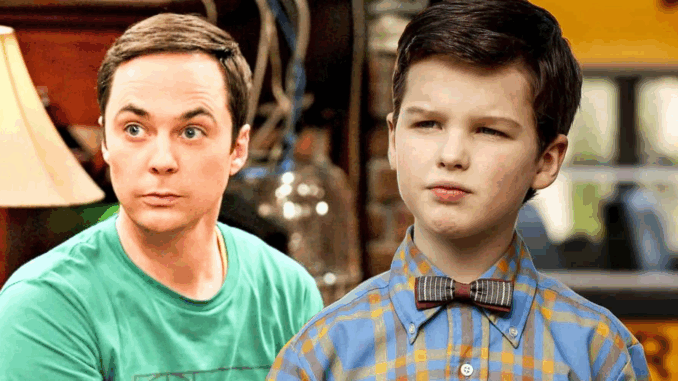
The Iconic Character at the Core
Sheldon Cooper, portrayed brilliantly by Jim Parsons, is one of television’s most memorable characters. With his strict routines, lack of social awareness, and unmatched intellect, he quickly became both the comedic centerpiece and emotional wild card of The Big Bang Theory. But what made Sheldon truly iconic wasn’t just his quirks—it was his journey.
Over the show’s 12 seasons, Sheldon transformed in ways that were subtle, complex, and ultimately rewarding. His evolution from a self-centered genius into a man capable of deep connection was one of the most compelling character arcs in sitcom history.
The Man Who Couldn’t Read a Room
At the show’s start, Sheldon’s inability to understand basic social cues was a primary source of humor. He had no filter, no regard for others’ feelings, and was often oblivious to sarcasm or body language. This made for hilariously awkward moments but also raised questions about his emotional range and capacity for growth.
While the show never explicitly labels Sheldon, many fans and critics see his behavior as consistent with characteristics of autism spectrum disorder. Whether intentional or not, his portrayal brought visibility to a kind of brain rarely explored in mainstream comedy.
The Role of His Friends in His Growth
Though Sheldon often frustrated his friends—Leonard, Howard, Raj, and later Penny—they never gave up on him. They challenged him, called him out, and supported him in learning empathy and cooperation. Leonard especially played the role of reluctant caregiver, enduring countless insults while also pushing Sheldon to grow.
Penny’s influence was equally transformative. Despite their differences, she taught him about human emotion in ways he could absorb. Her no-nonsense attitude and deep patience allowed Sheldon to expand his emotional vocabulary.
Amy Farrah Fowler: The Catalyst for Change

Amy’s introduction in Season 3 marked a turning point in Sheldon’s development. Initially portrayed as a female version of himself—analytical, awkward, emotionally distant—Amy gradually opened herself to vulnerability. As she did, she encouraged Sheldon to do the same.
Their slow-burn romance gave the show some of its most touching moments. From holding hands for the first time to finally sharing intimacy, their milestones were portrayed with care and authenticity. Amy never demanded Sheldon change, but she inspired him to want to be better—for her and for himself.
Breakthrough Moments
Several scenes across the series show Sheldon’s transformation in powerful ways:
-
“The Opening Night Excitation” (S9, Ep11): Sheldon chooses to be intimate with Amy for the first time—not out of obligation, but as a heartfelt gift.
-
“The Bow Tie Asymmetry” (S11, Ep24): At his wedding, Sheldon surprises Amy and the audience with genuine vulnerability and love.
-
“The Stockholm Syndrome” (S12, Ep24): During his Nobel Prize speech, Sheldon puts his friends before himself, acknowledging how they shaped him. It’s a defining moment of maturity and gratitude.
These moments weren’t just character beats—they were the culmination of a decade-long arc.
Why Sheldon’s Arc Mattered
In a television landscape where many characters remain static for comedic effect, Sheldon’s gradual growth stood out. His transformation was believable because it wasn’t sudden—it was earned through experience, relationships, and reflection.
Viewers saw that even the most rigid personality could evolve. It offered hope that personal change is always possible, no matter your starting point.
Legacy Beyond the Show
Sheldon’s character was so compelling that it led to the successful prequel series Young Sheldon, which explores his childhood and relationship with his family. This further enriched the lore and allowed fans to understand the roots of his personality.
Jim Parsons’ portrayal also earned him multiple Emmy Awards and critical acclaim, cementing Sheldon as one of the great sitcom characters of all time.
Final Thoughts
Sheldon Cooper began as the punchline of many jokes—but he ended as a symbol of emotional growth and self-awareness. His evolution reminded audiences that intelligence alone isn’t enough. It’s our capacity for connection, empathy, and love that defines us.
In the world of The Big Bang Theory, no one changed more—and perhaps, no one taught us more—than Sheldon.
